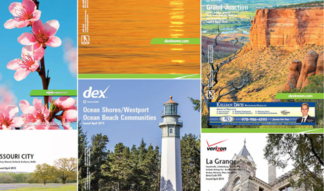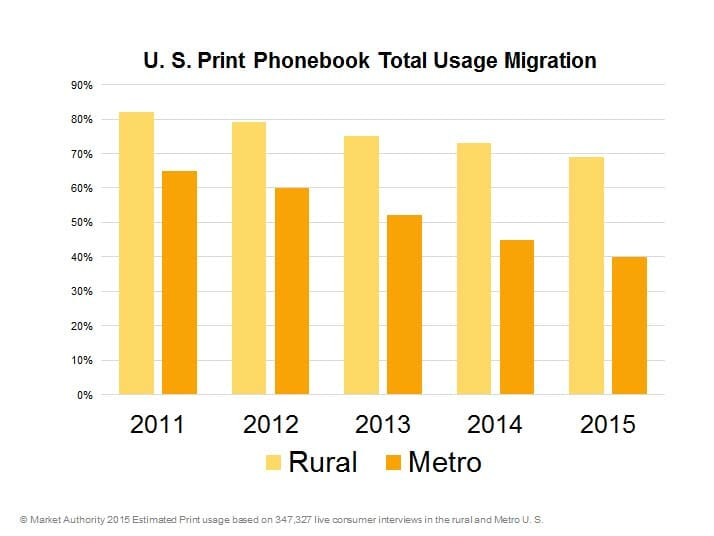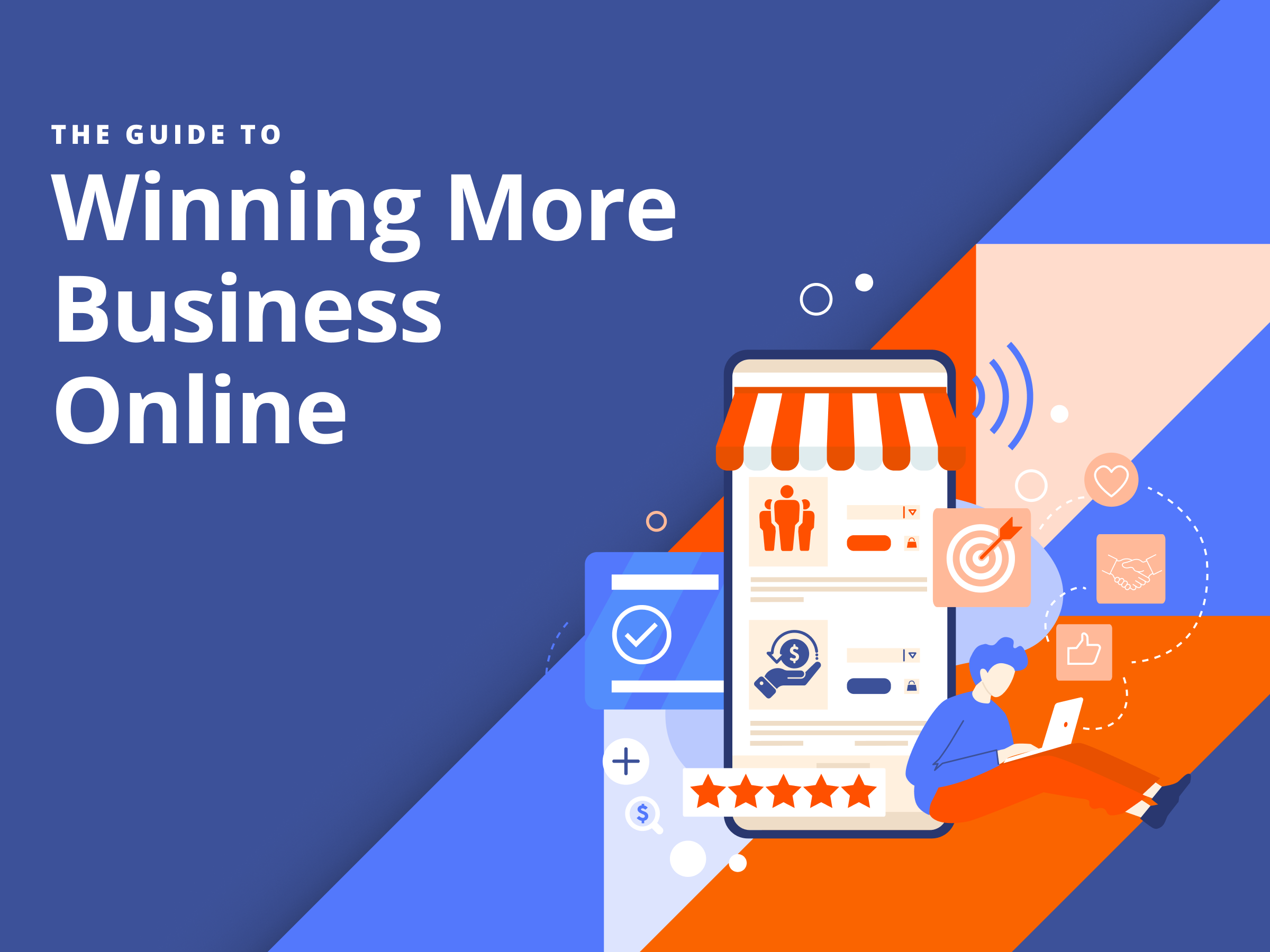
Everyone takes the phone book straight out to the recycling bin.
Right?
Well, the data say no. Research firm Market Authority has interviewed consumers for the past 5 years about their local shopping habits, 350,000 interviews in both rural and urban communities.

The Guide to Winning More Business Online
DownloadAnd–spoiler alert–consumers look at a wide variety of media for local business search, including print directories. That’s why sophisticated marketers look at media in terms of a mix to be adjusted to hit different audiences at different price points and get new local customers.
For instance, take a look this chart from Market Authority:

Outside of the metro areas across America, print phone book usage is just shy of 70%. These are consumers who have said that in the past year they have used a phone book to find a business. And in the metro areas, a solid 40% of people are still using phone books.
How can this be true?
Researchers have found that habits die hard in many people over 50. As a group, they have been much slower in adopting new technologies. As business people involved in marketing, we (and the people we work with) tend to be the quickest to become aware of and adopt new trends, forgetting that not everyone moves as quickly as we do. So, some people do still use print yellow pages, but what does this mean? If your most profitable clients are over 50 (and they do have 70% of the disposable income) and you have an all-digital strategy, you might be missing out on a valuable lead generation channel in print yellow pages.
We are digital consumers, clearly, and it’s totally understandable that print phone book usage has been declining, just not at the rate or in the volume people might think.
What about digital consumers? When they search online, whether mobile or desktop, where do they go to find a local business?
Here’s the breakdown from Philadelphia, PA, in February, 2015, as an example:
- 48% of consumers prefer to look at the organic online search results
- 29% of consumers are looking in the printed phone directory
- 12% of consumers prefer checking the paid online search sources
- 11% of consumers use all other online search mediums combined (including online directories like superpages.com and dexknows.com)
When a small business sees that nearly half of consumers look for a business in the organic online search results (primarily Google), the challenge becomes “How do we show up in the top 10 in Google?” Because if your business ends up on page 2 in Google results, only 4% of users ever search that far. If you want to be found by 95% of people who are searching on Google, it’s a top 10 game all the way.
There are two ways a small business can stay in the game and compete for visibility in organic results to get new local customers.
- Optimize your website and target long-tail search terms that fit your category of business and your geo location. For example, “emergency plumbing services, Coppell, TX”. It’s a specific term coupled with a more specific geo area.
- In order to rank for the broader, more competitive keywords like “plumber, Dallas” make sure your business has a robust business profile listing on the major online directories because they typically show up well in organic results for the bigger keywords. And if your business has a rich, up-to-date listing with them, you can ride their coattails and get visibility you might not have been able to achieve with your own website. (This is also called “Barnacle SEO“, a term coined by Will Scott, CEO of Search Influence.)
The key takeaway for your business is all about being findable wherever your customers are searching:
- Print yellow pages
- Online directories
- Paid ads online
Our company, Dex Media, publishes Yellow Pages print directories in these states:
Arizona, California, Colorado, Delaware, Florida, Idaho, Illinois, Indiana, Iowa, Kansas, Kentucky, Maine, Maryland, Massachusetts, Michigan, Minnesota, Missouri, Montana, Nebraska, Nevada, New Hampshire, New Jersey, New Mexico, New York, North Carolina, North Dakota, Ohio, Oregon, Pennsylvania, Rhode Island, South Carolina, South Dakota, Tennessee, Texas, Utah, Vermont, Virginia, Washington, West Virginia, Wisconsin, Wyoming and Washington, DC.

The Guide to Winning
More Business Online
We’ll show you how to land more customers with a better website and online presence in this free ebook.


